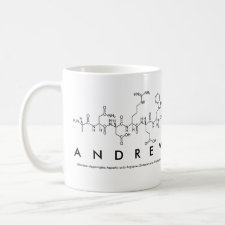
Authors: Lettieri S, Manesiotis P, Slann M, Lewis DW, Hall AJ
Article Title: A novel Hamilton receptor monomer for the stoichiometric molecular imprinting of barbiturates.
Publication date: 2021
Journal: Reactive and Functional Polymers
Volume: 167
Article Number: 105031.
DOI: 10.1016/j.reactfunctpolym.2021.105031
Alternative URL: https://www.sciencedirect.com/science/article/pii/S1381514821002236
Abstract: New molecularly imprinted polymers (MIPs) for the recognition of barbiturates were synthesised by "bulk" polymerisation. These polymers were prepared using pentobarbital as the template in combination with a novel Hamilton receptor functional monomer. The solution binding properties of the monomer were assessed by NMR titration experiments, showing high affinity for barbiturates and lower affinity for related compounds lacking the ability to form as many hydrogen bonds. The properties of the MIP were assessed via equilibrium rebinding experiments and in the chromatographic mode, and compared to the behaviour of a control non-imprinted polymer (NIP). The MIP showed a far higher population of binding sites with higher affinity than the NIP which was reflected in the chromatographic evaluation, where the template and a related barbiturate were not eluted from the MIP within 60 min, while their retention was weak on the NIP, leading to extremely high imprinting factors. Other analytes were weakly retained by MIP and NIP, with those presented an acceptor-donor-acceptor array of hydrogen bonding sites most retained. Preliminary molecular modelling studies support the hypothesis that the presence of the template in the MIP synthesis "chooses" the conformation of the functional monomer that is "locked in" during the polymerisation
Template and target information: pentobarbital, barbiturates
Author keywords: molecularly imprinted polymer, Barbiturates, Hamilton receptor



Join the Society for Molecular Imprinting

New items RSS feed
Sign-up for e-mail updates:
Choose between receiving an occasional newsletter or more frequent e-mail alerts.
Click here to go to the sign-up page.
Is your name elemental or peptidic? Enter your name and find out by clicking either of the buttons below!
Other products you may like:
 MIPdatabase
MIPdatabase









